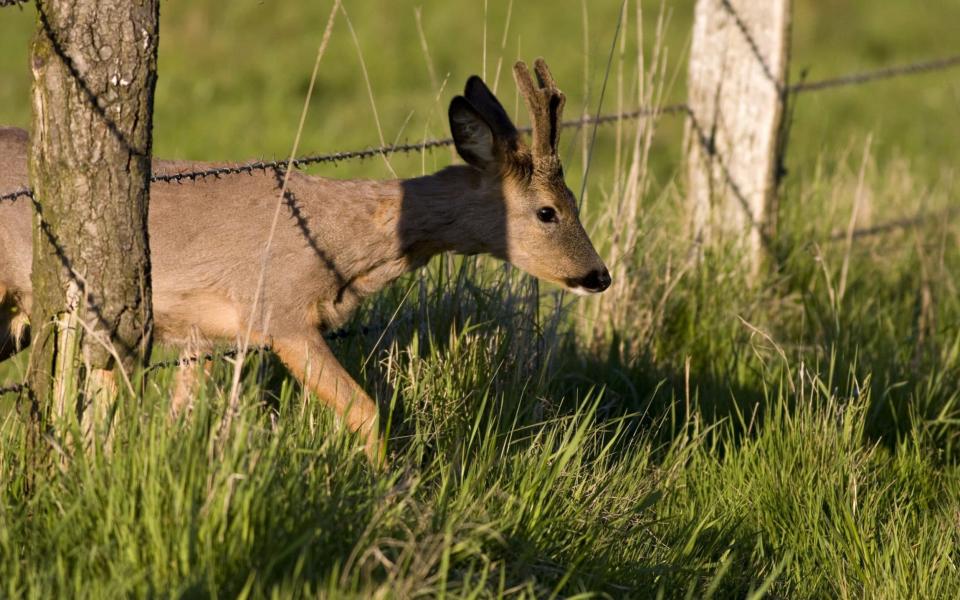National Trust fees could rise if barbed wire is banned, campaigners warn

National Trustmembership fees will rise if plans to remove barbed wire from its land succeed at a pivotal vote, campaigners have warned.
Members have tabled the animal welfare motion for a ban after the decomposing body of a deer was discovered hanging upside down in fencing at Greys Court, a Tudor country house near Henley-on-Thames, earlier this year .
But the charity’s board of trustees is fighting the move amid concerns it would cost millions of pounds and cause mayhem for its 1,600 tenant farms.
The vote by the trust’s 5.2 million members could see barbed wire replaced with more animal friendly fencing throughout it 250,000 hectares of land and 750 miles of coastline with in five years.
More than 50 members backed the proposals meaning it will be voted on at its AGM in Swindon.

The resolution claims barbed wire is “outdated” because it can injure “wild animals and people” and so is at odds with the trust’s commitment to nurture wildlife. If passed it would mean land managers would have urgently to identify and remove wire from “higher risk sites”, and then banish all of it by 2023.
A Countryside Alliance spokesman said: “The trust has got itself in a ridiculous situation where the signatures of 50 members can means it has to consult its five million membership, no matter how absurd the question being asked.
“The trust also seem to be overly sensitive to organised online campaigns run by activists.
“If this proposal is successful it will cost millions of pounds to implement over the next few years and that means that either the trust membership will have to fund the cost with an increase in joining fees or the money will come out of real conservation and environmental projects of the sort the trust was set up to deliver.”

In its response to the proposal, the trustees insisted that it was “very rare” for animals to be injured by barbed wire, adding that land managers should “continue to have the freedom to use the most appropriate methods for managing livestock and protecting sensitive sites”.
Urging members to vote against the resolution, they added: “The population of deer in the UK is at an all-time high. In spite of this the number of incidences of deer (and other wildlife) being harmed by barbed wire is extremely low. Deer will normally try to find a way around, through or under a fence before trying to jump over it.
“Barbed wire enables us to protect certain areas - from the damage livestock can cause and prevents them from exerting pressure on fencing and potentially breaking through.”
However, Elisa Allen, director for People for the Ethical Treatment of Animals praised the plan to ban barbed wire as a “more compassionate way to coexist with other living beings”.
She said: “Humans owe animals a humane solution to our encroachment on their natural habitats, and if barbed wire is proving fatal for deer and other wildlife, then safer alternatives must be pursued.”
Commenting on how barbed wire can pose a threat to people enjoying the countryside, Tompion Platt, of the Ramblers, said: “We understand the need to use barbed wire in certain circumstances, to protect areas of high conservation sensitivity from livestock.
“However, we would urge landowners to only used barbed wire where there is no better, safer alternative and ensure that it isn’t used anywhere where it could pose a danger to countryside users on public rights of way, or to block paths.”

 Yahoo News
Yahoo News 